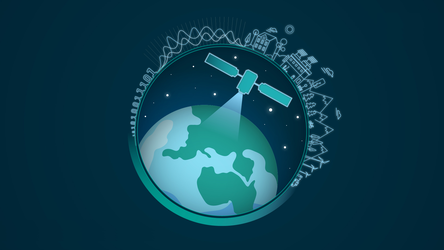Join the virtual classroom
Registration is open for a free online course that provides an introduction to monitoring climate change using satellite Earth observation.
ESA has teamed up with FutureLearn, a leading online learning platform, to offer the ‘Monitoring Climate from Space’ course beginning on 8 June.
From their vantage point some 800 km above Earth, satellites provide crucial information on our planet’s land, oceans, atmosphere and ice. This information gives us a view of the current state of our climate, and allows us to detect changes over time.
The course will focus on the role of satellite data in supporting decisions relating to climate change and sustainable development. It is designed for current and future policy-makers, educators, climate communications professionals and the wider public.
Particular attention will be given to data from ESA’s satellite missions, including CryoSat, SMOS, GOCE and the Sentinels, and use information from the Climate Change Initiative.
Seventeen educators from leading scientific universities and institutions will guide the virtual classroom over the five-weeks course. Discussion of course material with the educators and other participants will also be possible.


Access the video
“In today’s increasingly knowledge-based world, putting learners in touch with experts in their chosen field is an essential part of any education programme. I am honoured to welcome ESA to the FutureLearn partnership,” said Simon Nelson, Chief Executive of FutureLearn.
So far, over 3300 people have registered for the course.
This is ESA’s first massive online open course – or MOOC – and was designed with the help of Imperative Space. The course is part of ESA’s ‘EO Science 2.0’ initiative, which explores challenges and opportunities faced by the Earth observation scientific community in responding to advances in communication technologies.
The first Science 2.0 conference will be held 12–14 October.














 Germany
Germany
 Austria
Austria
 Belgium
Belgium
 Denmark
Denmark
 Spain
Spain
 Estonia
Estonia
 Finland
Finland
 France
France
 Greece
Greece
 Hungary
Hungary
 Ireland
Ireland
 Italy
Italy
 Luxembourg
Luxembourg
 Norway
Norway
 The Netherlands
The Netherlands
 Poland
Poland
 Portugal
Portugal
 Czechia
Czechia
 Romania
Romania
 United Kingdom
United Kingdom
 Slovenia
Slovenia
 Sweden
Sweden
 Switzerland
Switzerland




























